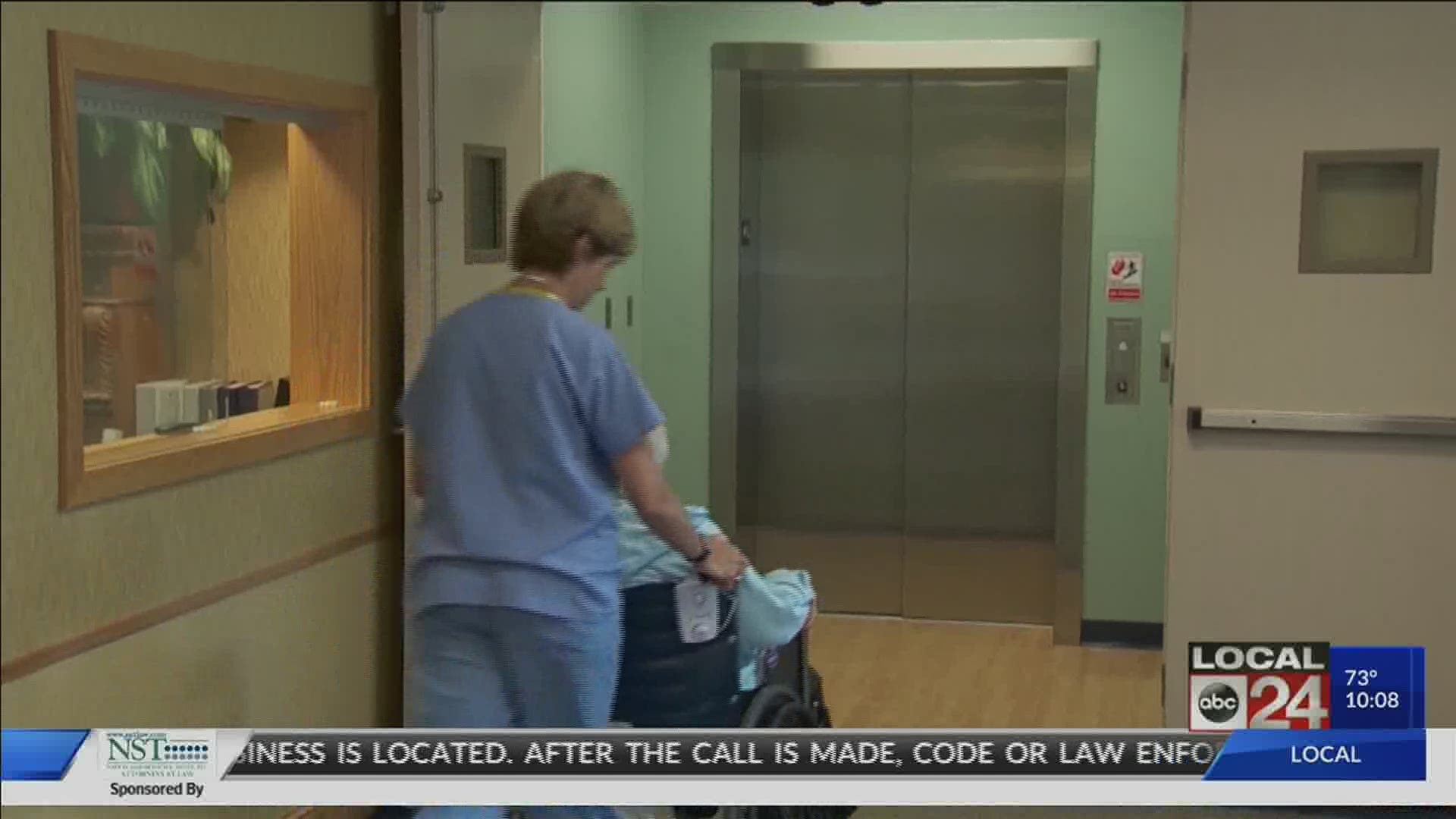MEMPHIS, Tenn. — If you have a parent, spouse, sibling, or any loved one in a nursing home, you may be concerned about their safety right now during this pandemic. The Shelby County Health Department is investigating clusters of Covid-19 infections in a number of facilities that serve vulnerable populations: 14 to be exact.
Local 24 News Weeknight Anchor Katina Rankin spoke with one of AARP's state directors about key things you should ask nursing home facilities to make sure your loved one is protected.
"We've heard from members and volunteers and the public-at-large that you've been really concerned about your loved ones and not been able to get to visit them or to know about their wellbeing," said Mississippi's AARP State Director Kimberly Campbell.
Mississippi's AARP State Director Kimberly Campbell says if that's the case, you need to ask nursing homes and residential care facilities six questions.
First, she says you should ask if anyone at the facility has tested positive for COVID-19.
"And then, the next question would be, 'What is the nursing home doing to prevent those infections? Has there been an outbreak? If so, what precautions have you taken to protect those individuals that are in the facility and to make sure they are getting the care that they need?’" said Campbell.
Campbell says it's also important to know if the facility has enough personal protective equipment or PPE.
"So that they can be protected, as well as them being able to protect your loved ones," said Campbell.
And, a question she says is vitally important during this pandemic: what is the facility doing to keep loved ones connected?
"Things that can really help your loved ones stay connected with those concerned about them. It helps the resident, and it helps the family have a peace of mind."
She says make that line of communication with family open. And finally, ask if the nursing home has a full staff.
"We want our families to be engaged. We want them to be connected. And we want them to be able to make the best informed decisions for their loved ones," said Campbell.
If you have done all of the above and can't get answers, you can also contact your ombudsman for the area. Learn more HERE.


